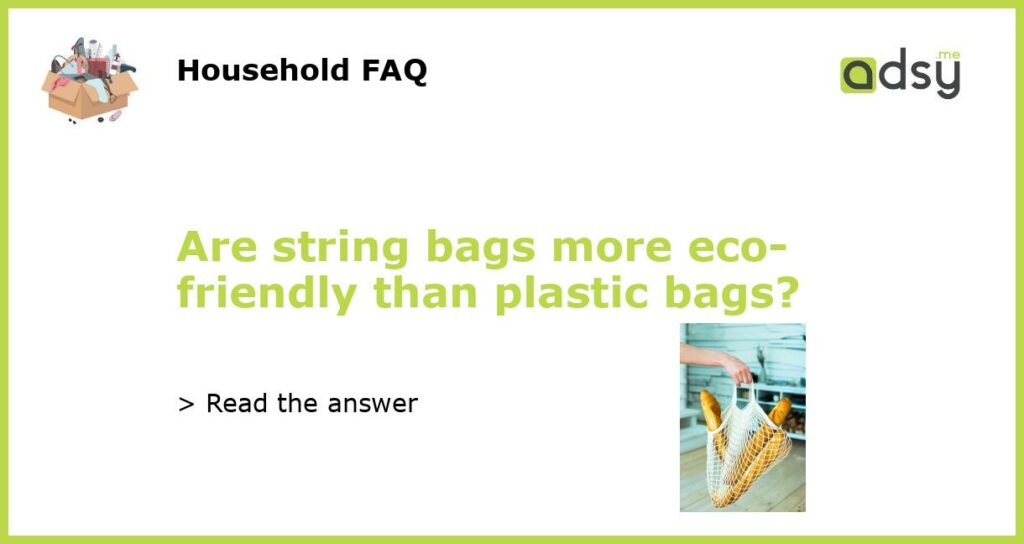Understanding the Environmental Impact of Plastic Bags
Plastic bags have become a ubiquitous part of our lives. They are lightweight, inexpensive, and seem convenient for carrying groceries or other items. However, the environmental impact of plastic bags is significant and cannot be ignored. These bags are made from non-renewable resources like petroleum, requiring extensive energy consumption and contributing to greenhouse gas emissions during their production. Additionally, plastic bags take hundreds of years to decompose, leading to long-lasting pollution in landfills and oceans.
The Rise of String Bags as an Eco-Friendly Alternative
String bags, also known as tote bags or reusable bags, have emerged as a popular alternative to plastic bags due to their eco-friendly nature. These bags are typically made from natural materials like cotton, jute, or hemp, which are renewable resources. String bags are also known for their durability, allowing them to be used multiple times without damage. Moreover, they are lightweight and collapsible, making them portable and convenient to carry.
Comparing the Environmental Impact of String Bags and Plastic Bags
When it comes to assessing the eco-friendliness of string bags compared to plastic bags, several factors need to be considered:
- Material: String bags are made from renewable resources, while plastic bags are made from non-renewable petroleum.
- Production: String bags require less energy and produce fewer greenhouse gas emissions during their production compared to plastic bags.
- Disposal: Plastic bags take hundreds of years to decompose, contributing to pollution in landfills and oceans. In contrast, string bags can be reused multiple times and can also be recycled or composted at the end of their lifespan.
- Impacts on Wildlife: Plastic bags pose a significant threat to wildlife, especially marine animals, as they can be mistaken for food or become entangled in them. String bags, on the other hand, do not present the same risks to wildlife.
The Benefits and Drawbacks of Using String Bags
Using string bags has several benefits that go beyond their environmental impact:
- Reduced Cost: While it may require an initial investment, using string bags can save money in the long run as they can be reused multiple times.
- Stylish and Versatile: String bags come in various designs and colors, allowing individuals to express their style while being environmentally conscious. They are also suitable for different purposes, from grocery shopping to carrying personal items.
- Increased Awareness: Using string bags can serve as a conversation starter and raise awareness about the need to reduce single-use plastics and embrace sustainable alternatives.
However, it is important to acknowledge that there are some drawbacks to using string bags:
- Initial Cost: While string bags can save money in the long run, the initial investment may deter some individuals from making the switch.
- Forgotten or Lost Bags: Remembering to bring string bags when going shopping can be a challenge for some individuals, resulting in the continued use of plastic bags.
Making the Choice: String Bags vs. Plastic Bags
Considering the environmental impact, long-term cost savings, and versatility of string bags, they are undoubtedly a more eco-friendly choice compared to plastic bags. Embracing string bags as a sustainable alternative can significantly reduce our reliance on single-use plastics and contribute to a cleaner, greener future. While there may be some initial challenges in making the switch, the benefits far outweigh the drawbacks. It is time to prioritize the wellbeing of our planet and choose string bags over plastic bags.






